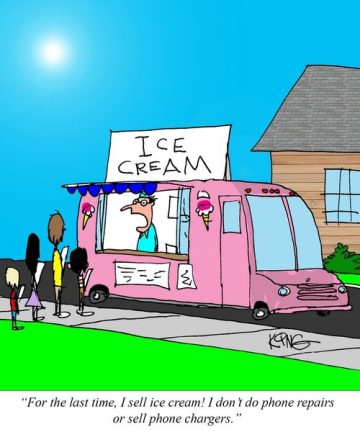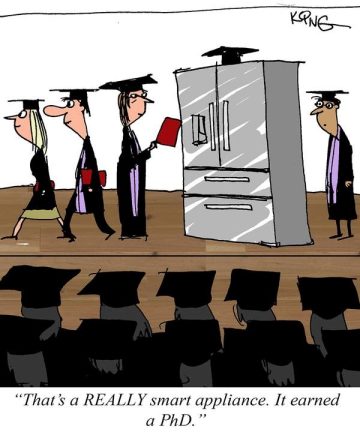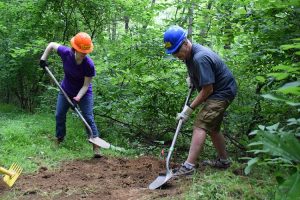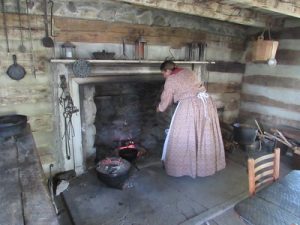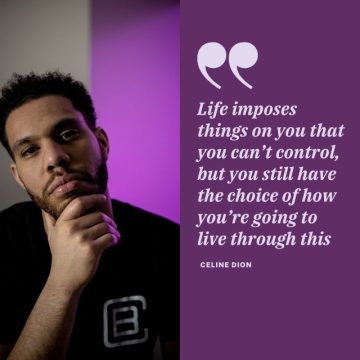State News
Many Pornography Websites Aren’t Complying With New Virginia Age Verification Law
Since a new law went into effect this July, pornography websites in Virginia have been required to more rigorously verify whether a person is 18 or over before allowing them to access adult content.
However, an analysis by the Virginia Mercury shows the majority of these websites are not using age verification methods as mandated.
Additionally, since the law went into effect, data shows that an increasing number of Virginians are using technology that can easily grant access to these websites from locations in the Commonwealth.
The legislation passed the General Assembly on a nearly unanimous vote this March. Bill patron Sen. Bill Stanley, R-Franklin, told the Mercury the proposal aimed to curb children’s access to harmful adult content.
Under the law, websites must verify users’ age and identity but can select a specific method of verification, such as requiring users to upload copies of government-issued identification or adopting other unspecified commercial technology. The law also allows people to sue pornographic websites that don’t use proper age and identity verification methods “for damages resulting from a minor’s access to such material.”
While some pornography websites — most notably Pornhub — have opted to block users from accessing their platforms altogether in Virginia in protest of the new law, residents can still easily access adult content through a plethora of unrestricted, lesser-known websites.
Ahead of new age verification law, Pornhub blocks access in Virginia
To get an understanding of how many websites are complying with the law, the Mercury attempted to access the 65 “top porn tube sites” listed on toppornsites.com.
As of August 15, only one website, xHamster, is using age verification methods mandated by the law. Ten websites are blocked altogether, and 54 remain entirely unrestricted.
Free Speech Coalition Executive Director Alison Boden said a big reason why a lot of websites aren’t complying with the law is because their companies are not based in the United States, which makes it difficult to hold them accountable for breaking it.
“The actual legal jeopardy that an international company might face, especially since it would be like a private lawsuit from an individual, is not terribly high compared to what a U.S. company would face if sued by a person in Virginia,” Boden said.
Attorney General Jason Miyares’ office did not respond to a request for comment on whether he is aware of websites not complying with the law.
Boden also emphasized that less-mainstream websites, unlike Pornhub, often lack adequate guardrails that ensure content uploaded on their platforms is consensual and legal.
People are “definitely at risk of going to the site where they aren’t as stringent about verifying who’s uploading content, that it belongs to them, that it’s legal and consensual,” Boden said.
However, Virginians can still easily access blocked websites like Pornhub through virtual private networks or VPNs — encryption methods that allow easy access to websites regardless of location.
According to 13NewsNow, Virginia had the highest number of searches for “VPN” or “virtual private network” of all states from June 29 through July 5.
NordVPN Public Relations Manager Darija Grobova said there was a 14% growth in VPN downloads from Virginia between June and July.
A representative from ExpressVPN said its website has seen a 15% increase in traffic from Virginia in the last two months.
ExpressVPN Digital Privacy Advocate Lauren Hendry Parsons said there are potential privacy concerns associated with uploading personal information through required age-verification methods.
“Across the United States, we are seeing a concerning trend of diminishing digital freedoms due to legislation,” Parson said. “We call upon legislators and the community to pursue better safeguards that prioritize the online safety of children without compromising an individual’s right to digital privacy and freedom.”
by Meghan McIntyre, Virginia Mercury
Virginia Mercury is part of States Newsroom, a network of news bureaus supported by grants and a coalition of donors as a 501c(3) public charity. Virginia Mercury maintains editorial independence. Contact Editor Sarah Vogelsong for questions: info@virginiamercury.com. Follow Virginia Mercury on Facebook and Twitter.
State News
Americans Leave a Huge Chunk of Change at Airport Security Checkpoints
Should the U.S. get rid of pennies, nickels and dimes? The debate has gone on for years. Many people argue for keeping coins on economic-fairness grounds. Others call for eliminating them because the government loses money minting low-value coins.
One way to resolve the debate is to check whether people are still using small-value coins. And there’s an unlikely source of information showing how much people are using pocket change: the Transportation Security Administration, or TSA. Yes, the same people who screen passengers at airport checkpoints can answer whether people are still using coins – and whether that usage is trending up or down over the years.
Each year, the TSA provides a detailed report to Congress showing how much money is left behind at checkpoints. A decreasing amount of change would suggest fewer people have coins in their pockets, while a steady or increasing amount indicates people are still carrying coins.
The latest TSA figure shows that during 2023, air travelers left almost US$1 million in small change at checkpoints. This is roughly double the amount left behind in 2012.
At first glance, this suggests more people are carrying around and using coins. But as a university researcher who studies both travel and money usage – as well as a keen observer of habits while lining up at airport checkpoints – I know the story is more complicated than these numbers suggest.
What gets left behind?
More than 2 million people fly each day in the U.S., passing through hundreds of airport checkpoints manned by the TSA. Each flyer going through a checkpoint is asked to place items from their pockets such as wallets, phones, keys and coins in either a bin or their carry-on bag. Not everyone remembers to pick up all their items on the other side of the scanner. About 90,000 to 100,000 items are left behind each month, the TSA estimates.
For expensive or identifiable items such as cellphones, wallets and laptops, the TSA has a lost-and-found department. For coins and the occasional paper bills that end up in the scanner bins, TSA has a different procedure. It collects all that money, catalogs the amount and periodically deposits it into a special account that the TSA uses to improve security operations.
That money adds up, with travelers leaving behind almost $10 million in change over the past 12 years.
The amount of money left varies by airport. JFK International Airport in New York City is consistently in one of the top slots for most money lost, with travelers leaving almost $60,000 behind in 2022. Harry Reid International Airport, which serves Las Vegas, also sees a large amount of money left behind. Love Field in Dallas, headquarters of Southwest Airlines, is often near the bottom of the list, with only about $100 lost in 2022.
People lose money while going through security for a few reasons. First, some cut it close getting to the airport, and in their rush to avoid missing their plane, they don’t pick up everything after screening. Second, sometimes TSA lines are exceptionally long, leaving people to again scramble to make up time. And finally, TSA checkpoints are often confusing and noisy places, especially for new or infrequent travelers. Making it more confusing is that some airports have bins featuring advertisements, which distract travelers who only quickly glance to check for all their items.
How much is lost?
TSA keeps careful track of how much is lost because the agency is allowed to keep any unclaimed money left behind at checkpoints. TSA records show people left behind half a million dollars in 2012. This rose to almost a million in 2018. The drop in travel due to the COVID-19 pandemic reduced the figure back to half a million in 2020. In 2023, people left $956,000.
These raw figures need two adjustments to accurately track trends in coins lost. First, the numbers need to be adjusted for inflation. From 2012 to 2023, the consumer price index rose by 33%. This means a dollar of change in 2012 purchased one-third more than it did 12 years later.
Second, the number of people flying and passing through TSA screening has changed dramatically over time. In 2012, about 638 million people went through the checkpoints. By 2023, that had risen to 859 million people, which is about 1,000 people every 30 seconds across the entire U.S. when airports and checkpoints are open.
Adjusting for both inflation and the number of people screened shows no change in the amount of money lost. My calculations show back in 2012 about $1.10 in coins was lost for every 1,000 people screened. In 2023, about one penny more, or $1.11, was lost per 1,000.
The peak year for money being lost was 2020, when $1.80 per 1,000 people was left behind. This was likely due to people not wanting to touch objects out of misplaced fear they could contact COVID-19. During the pandemic, people in general carried less money.
The world is increasingly using electronic payments. The data from TSA checkpoints, however, clearly shows people are carrying coins at roughly the same rate as back in 2012. This suggests Americans are still using physical money, at least for making small payments – and that the drive to get rid of pennies, nickels and dimes should hold off a while longer.
Editor’s note: This story originally appeared in The Conversation.
by Jay Zagorsky, Virginia Mercury
Virginia Mercury is part of States Newsroom, a nonprofit news network supported by grants and a coalition of donors as a 501c(3) public charity. Virginia Mercury maintains editorial independence. Contact Editor Samantha Willis for questions: info@virginiamercury.com. Follow Virginia Mercury on Facebook and Twitter.
State News
Virginia Teacher Pay Gets a Boost in Budget, But it’s Still Projected to Fall Short of National Average
Legislation that would have aligned Virginia teachers’ pay with the national average or higher by the 2027-28 school year won bipartisan support but was blocked from the state budget by Gov. Glenn Youngkin’s veto last week.
The two-year budget, signed last week, includes $540 million to help pay for 3% salary increases for teachers and state employees in both years.
The governor said he supported the goal of “ensuring that teachers and state-funded education support positions are funded competitively,” but didn’t approve the bill to boost educators’ salaries to the national average because it relied heavily on what he viewed as flawed data from the National Education Association, which represents educators across the country.
In his veto, the governor said the legislation does not “accurately reflect” the state of teacher compensation in Virginia and that NEA’s methodology includes substitute teacher compensation and fails to account for supplemental salary expenditures in determining teacher compensation. He added that the legislation does not account for various scenarios, such as an economic downturn or state of emergency, that could impact teacher pay rates.
The measure also didn’t include Youngkin’s earlier recommendation to create an annual teacher compensation review.
“Consistent, annual reporting of accurate teacher compensation data is essential for lawmakers and the governor to make sound decisions,” he said.
The governor further explained his veto by noting that since 2021, the state has invested $1.6 billion to grow teacher salaries by 23%.
Youngkin said that Virginia‘s average teacher pay was already projected to hit the national average this fiscal year.
Legislation to bring Va. teacher pay to national average gets bipartisan support
The Virginia Education Association argued that the governor’s administration is “mistakenly” making comparisons between the estimated national teacher pay average in the National Education Association Rankings and Estimates report and the Virginia estimate in the Virginia Department of Education (VDOE) Annual Salary Survey Report.
“The estimates provided within these two reports are calculated using different data and methodologies and are not comparable,” VEA said in a statement on Friday.
According to NEA’s recent report, Virginia’s salary average is $65,058, which is below the national estimated average of $71,699.
Virginia, like other states, provides NEA data to compile state averages in their annual reports, removing non-instructional positions and allowing for an “apples to apples comparison” across all the states, according to VEA.
The Department of Education’s “Annual Salary Survey Report” includes all salary expenditures, including supplemental pay, for classroom teachers, homebound teachers, guidance counselors, librarians, and instructional technology positions, VEA stated. NEA includes only classroom teachers, substitutes, and homebound teachers and excludes supplemental pay.
While lawmakers debated the actual national average during this year’s session, they agreed compensation must be improved for teachers, as vacancies have grown since the pandemic. Youngkin’s veto magnified some Democratic lawmakers’ concerns with Virginia’s educator shortage.
“This school year began with over 4,000 teacher vacancies across our commonwealth, and the governor is not interested in attracting or keeping teachers here. If he was, he would have signed my bill that would have ensured Virginia teachers are being paid at the national average,” said Del. Nadarius Clark, D-Suffolk, one of the bill’s carriers, along with Sen. Louise Lucas, D-Portsmouth.
Clark added that the governor’s veto indicates where he stands on public education.
“When the governor lets our teachers down, when he doesn’t value them, he is telling the communities they serve and their students that they don’t matter either,” Clark said.
With Youngkin’s veto coming in the same week as the 70th anniversary of the landmark Brown v. Board of Education ruling — in which the Supreme Court of the United States mandated states desegregate public schools — Lucas said the inequities the case tried to address decades ago still persist in her community and throughout Virginia, which the governor’s rejection of the bill won’t help resolve.
“Governor Youngkin doesn’t care about public education and is determined to hold our students back,” Lucas said. “This is just a small part of his broader agenda to disenfranchise Virginians, and we will not stand for it.”
by Nathaniel Cline, Virginia Mercury
Virginia Mercury is part of States Newsroom, a nonprofit news network supported by grants and a coalition of donors as a 501c(3) public charity. Virginia Mercury maintains editorial independence. Contact Editor Samantha Willis for questions: info@virginiamercury.com. Follow Virginia Mercury on Facebook and Twitter.
State News
More Than Half of States Sue to Block Biden Title IX Rule Protecting LGBTQ+ Students
Twenty-six GOP-led states, including Virginia, are suing the Biden administration over changes to Title IX aiming to protect LGBTQ+ students from discrimination in schools.
Less than a month after the U.S. Department of Education released its final rule seeking to protect against discrimination “based on sex stereotypes, sexual orientation, gender identity, and sex characteristics,” a wave of Republican attorneys general scrambled to challenge the measure.
The revised rule, which will go into effect on Aug. 1, requires schools “to take prompt and effective action when notified of conduct that reasonably may constitute sex discrimination in their education programs or activities.”
The lawsuits hail from Alabama, Alaska, Arkansas, Florida, Georgia, Idaho, Indiana, Iowa, Kansas, Kentucky, Louisiana, Mississippi, Missouri, Montana, Nebraska, North Dakota, Ohio, Oklahoma, South Carolina, South Dakota, Tennessee, Texas, Utah, Virginia, West Virginia and Wyoming.
All of the attorneys general in the 26 states suing over the final rule are part of the Republicans Attorneys General Association.
Various advocacy groups and school boards have also tacked onto the states’ legal actions. The lawsuits carry similar language and arguments in vehemently opposing the final rule. They say the new regulations raise First Amendment concerns and accuse the rule of violating the Administrative Procedure Act.
LGBTQ+ advocates say the revised rule offers students a needed protection and complies with existing law.
“Our kids’ experience in schools should be about learning, about making friends and growing as a young person. LGBTQ+ students deserve those same opportunities,” Sarah Warbelow, vice president of legal at the LGBTQ+ advocacy group Human Rights Campaign, said in an emailed statement. “In bringing these lawsuits, these state attorneys general are attempting to rob LGBTQ+ students of their rights, illustrating a complete disregard for the humanity of LGBTQ+ students.”
GOP states band together against new regulations
In the most recent effort, Alaska, Kansas, Utah, and Wyoming sued the Biden administration on Tuesday, accusing the Department of Education of seeking to “politicize our country’s educational system to conform to the radical ideological views of the Biden administration and its allies.”
The lawsuit claims that under the updated regulations, teachers, coaches and administrators would have to “acknowledge, affirm, and validate students’ ‘gender identities’ regardless of the speakers’ own religious beliefs on the matter in violation of the First Amendment.”
In another lawsuit, a group of Southern states — Alabama, Florida, Georgia and South Carolina — sued the administration in federal court in Alabama over the new regulations.
Republican Alabama Attorney General Steve Marshall said President Joe Biden “has brazenly attempted to use federal funding to force radical gender ideology onto states that reject it at the ballot box” since he took office.
“Now our schoolchildren are the target. The threat is that if Alabama’s public schools and universities do not conform, then the federal government will take away our funding,” Marshall said in a press release.
The lawsuit also drew praise from Republican Florida Gov. Ron DeSantis, who said “Biden is abusing his constitutional authority to push an ideological agenda that harms women and girls and conflicts with the truth.” He added that the Sunshine State will “not comply” and instead “fight back against Biden’s harmful agenda.”
Individual states sue the administration
Meanwhile, some states have opted to file individual lawsuits against the administration.
In Texas, Republican Attorney General Ken Paxton sued the Biden administration late last month in federal court in Amarillo. Paxton filed an amended complaint earlier this week, with two new plaintiffs added.
In an April 29 press release, Paxton said the Lone Star State “will not allow Joe Biden to rewrite Title IX at whim, destroying legal protections for women in furtherance of his radical obsession with gender ideology.”
Oklahoma’s Republican Attorney General Gentner Drummond filed a lawsuit against the Biden administration earlier this month in federal court in Oklahoma. The state’s education department also filed a separate suit against the Biden administration.
A hodgepodge of states
In late April, Republican attorneys general in Indiana, Kentucky, Ohio, Tennessee, West Virginia and Virginia filed a lawsuit against the Biden administration in federal court in Kentucky.
Virginia attorney general joins efforts to fight back against Title IX changes
The states argued that the U.S. Education Department “has used rulemaking power to convert a law designed to equalize opportunities for both sexes into a far broader regime of its own making.”
Idaho, Louisiana, Mississippi and Montana also sued the Biden administration in late April, echoing the language seen in the other related lawsuits. Seventeen local school boards in Louisiana also joined the states.
Earlier this month, Arkansas, Iowa, Missouri, Nebraska, North Dakota and South Dakota also brought a collective legal challenge to the final rule.
A spokesperson for the Education Department said the department does not comment on pending litigation but noted that “as a condition of receiving federal funds, all federally-funded schools are obligated to comply with these final regulations.” They added that the department looks forward “to working with school communities all across the country to ensure the Title IX guarantee of nondiscrimination in school is every student’s experience.”
The department has yet to finalize a separate rule that establishes new criteria for transgender athletes. So far, 24 states have passed laws that ban transgender students from partaking in sports that align with their gender identity, according to the Movement Advancement Project.
by Shauneen Miranda, Virginia Mercury
Virginia Mercury is part of States Newsroom, a nonprofit news network supported by grants and a coalition of donors as a 501c(3) public charity. Virginia Mercury maintains editorial independence. Contact Editor Samantha Willis for questions: info@virginiamercury.com. Follow Virginia Mercury on Facebook and Twitter.
State News
Governor Youngkin Signs Landmark Legislation to Strengthen Kinship Care in Virginia
Governor Glenn Youngkin signed House Bill 27 and Senate Bill 39 today, establishing the Parental Child Safety Placement Program. This new legislation codifies the practice of placing children with relatives, reinforcing Virginia’s commitment to a “Kin First” child welfare system. This legislation’s framework empowers local social services departments to place children with their families and relatives, ensuring better homes and outcomes for these children.

Governor Glenn Youngkin participates in a bill signing ceremony at the Hanover County Administration Building on May 21, 2024. Official Photo by Austin Stevens, Office of Governor Glenn Youngkin.
“Today, we celebrate a milestone over a decade in the making. An overwhelming collection of hearts have come together to demonstrate that working in partnership, we can fundamentally change lives,” said Governor Glenn Youngkin. “This legislation represents a significant step forward in fulfilling Virginia’s commitment to improving the child welfare system and prioritizing the well-being of children in Virginia. By establishing a robust statutory framework centered on kinship care, we pave a pathway towards permanency for Virginia’s children, ensuring consistent practice across all local social services, incorporating safeguards, clear time frames, active family engagement, and consistent services for children, caregivers, and parents.”
Addressing Historical Struggles in Kinship Placement
The legislation aims to address Virginia’s historical struggles in placing children with kinship families upon entering foster care. Despite recent improvements, only 16% of children in foster care are placed with kinship families, far below the national average of 35%. Research indicates that children placed with relatives experience better behavioral and mental health outcomes, increased permanency, and greater stability, including the likelihood of remaining with siblings.
Voices of Support
“I am honored to take part in the passage of this historic kinship care bill. This legislation provides much-needed support to those entering kinship care arrangements. I’d like to thank everyone who assisted in helping this bill become law, including Senator Favola, UVA Law, Voices for Virginia’s Children, the Office of the Children’s Ombudsman, VDSS administrators and staff, and many others who provided guidance and expertise all focused on a shared goal: creating better outcomes for children interacting with our foster care system,” said Delegate Katrina Callsen.
“I am proud to say that protecting our children and supporting families in crisis has been a successful bipartisan effort. It is incredibly important to establish and fund safety net programs that enable families to create stable and loving homes. Our children can only succeed when we as a society provide them with an environment where they can thrive,” said Senator Barbara Favola.
“Keeping families together is of utmost importance. I am proud to stand with my colleagues as Governor Youngkin signs SB39. This legislation enables us to support families in the most challenging circumstances, preventing children from being automatically placed into foster care. Together, we can ensure the best possible outcome for children and families across the Commonwealth,” said Senator Ryan McDougle.
Key Provisions and Goals
House Bill 27 and Senate Bill 39 aim to improve outcomes for children by prioritizing kinship care, ensuring children’s safety while preserving families, and honoring parents’ rights. The legislation mandates local departments of social services to submit exception reports, monitor barriers to kinship placements, and develop service plans for the children and their families. Additionally, financial support for kinship caregivers is provided, which is crucial for covering the costs of caring for children and addressing additional needs in the home.
By prioritizing kinship care and placement stability, HB 27 and SB 39 seek to protect children from the trauma of multiple placements and improve their overall well-being.
State News
Governor Youngkin and First Lady Honor Youth For Tomorrow with Spirit of Virginia Award
Governor Glenn Youngkin and First Lady Suzanne S. Youngkin presented the Spirit of Virginia Award to Coach Joe Gibbs’ nonprofit organization, Youth For Tomorrow (YFT), during the annual Burgundy and Gold Banquet. The ceremony, attended by past and present Washington Commander players and other dignitaries, celebrated YFT’s significant impact on children and families throughout Virginia since its founding in 1986.
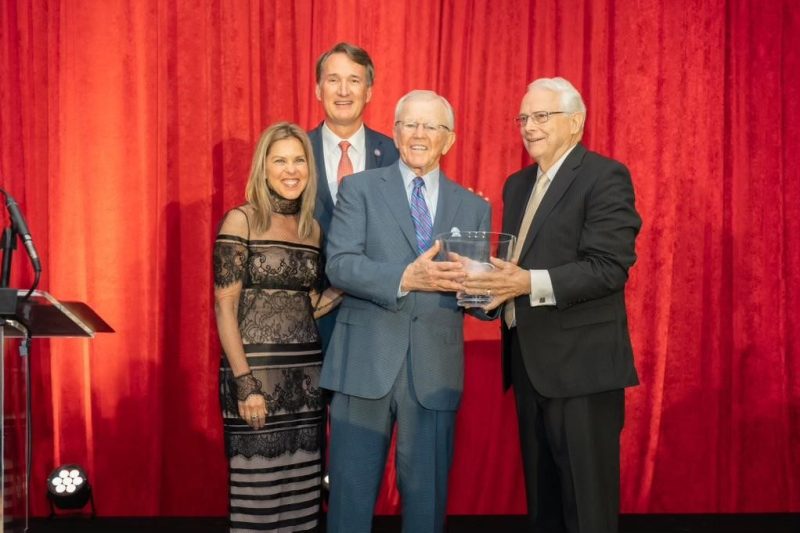
First Lady Suzanne S. Youngkin and Governor Glenn Youngkin present the Spirit of Virginia Award to Coach Joe Gibbs and Dr. Gary L. Jones on May 16, 2024. Official photo by Shealah Craighead.

First Lady Suzanne S. Youngkin and Governor Glenn Youngkin with Coach Joe Gibbs and Peyton Manning on May 16, 2024. Official photo by Shealah Craighead.
“Youth For Tomorrow is a God-inspired organization that has truly impacted thousands of kids throughout our Commonwealth,” Governor Youngkin remarked. “Led by a passionate group of individuals answering the call to serve others, Youth For Tomorrow provides every young person who feels lost and without hope a safe place to feel loved and supported.”
First Lady Suzanne S. Youngkin echoed these sentiments, emphasizing the importance of support systems for all Virginians, especially children. “Youth For Tomorrow does just that, sowing the seeds for a more prosperous and positive Virginia.”
Coach Joe Gibbs, the founder and chairman of YFT, shared his heartfelt appreciation for the recognition. “Youth For Tomorrow was a dream and a calling the Lord had placed on my heart. My vision was to establish a Christian home for troubled teenage boys. Almost 40 years later, that dream is a reality and is more than I ever could have imagined,” he said. “On behalf of the Board of Trustees and Gary Jones, I am deeply honored to receive this distinguished Spirit of Virginia award from the First Lady, Suzanne Youngkin, and the Governor.”
Dr. Gary L. Jones, CEO of YFT, expressed his gratitude for the award, highlighting the organization’s extensive service history. “It is with our sincerest gratitude, accepting this award which recognizes the countless lives we have impacted over our 38-year history. It is with God’s grace that YFT has touched the lives of almost 40,000 children whose lives were in despair when they arrived on the doorsteps to our homes on campus and behavioral health regional offices.”
Since its inception, Youth For Tomorrow has dedicated itself to supporting at-risk and vulnerable children and families. Originally established to help troubled teenage boys, YFT expanded its services to include teenage girls in 2003, introducing programs like Mommy & Me for pregnant teens and girls with infants. Recognizing the dire issue of human trafficking, YFT also offers residential treatment for exploited and sexually trafficked domestic teenage girls.
YFT’s Bristow campus provides a haven for over 100 children, supported by more than 150 residential, therapeutic, and education staff. These professionals offer various services, including residential treatment, case management, clinical, nursing, psychiatric services, mentoring, and educational opportunities.
Beyond residential programs, YFT operates six regional offices providing behavioral health services such as mental health assessments, individual therapy, marriage and couples counseling, and substance abuse counseling. As of 2020, YFT serves nearly 800 children in residential services annually and conducts over 28,000 counseling sessions for children and their families in crisis. The organization also offers Therapeutic Day Treatment in selected elementary and middle schools in Prince William, Fairfax, and Loudoun counties to help children develop the life skills necessary for making positive decisions.
The Spirit of Virginia Award celebrates unique qualities and outstanding achievements across the Commonwealth. It salutes Virginians for their significant contributions to private industry, education, culture, the arts, and philanthropy.
Governor and Mrs. Youngkin will present four more Spirit of Virginia Awards in 2024, continuing their commitment to recognizing excellence throughout the state.
State News
Governor Glenn Youngkin Announces Continued Job Growth in April, Lower Unemployment Rate
On May 17, 2024, Governor Glenn Youngkin proudly announced that Virginia experienced continued job growth in April, with the state’s seasonally adjusted unemployment rate remaining below 3.0 percent at 2.8 percent. This figure is 0.1 percentage points lower than last month and 1.1 percentage points below the national rate, which rose to 3.9 percent.
“Our goal since day one has been for more Virginians to hear the words ‘you are hired,’ and each new job created represents a step toward a stronger Commonwealth and a promising future for all Virginians,” said Governor Youngkin. “It is our strong job growth that enabled us to pass and sign a bipartisan budget this week, making historic investments in areas important to our workforce, such as childcare for working families, behavioral health, and education. We will keep Virginia on a winning path and strengthen our economic vitality and our communities.”
In April, non-farm payroll employment in Virginia grew by 3,400. The number of employed Virginians increased by 517 to a total of 4,455,081. Since January 2022, over 204,000 more Virginians have found employment. Despite the labor force decreasing by 4,375 to 4,584,350, unemployed residents fell by 4,892 to 129,269. The labor force participation rate, which measures the proportion of the civilian population aged 16 and older that is employed or actively looking for work, decreased slightly to 66.4 percent.
“Continued employment growth and a sustained low unemployment rate signal resilience in our economy, paving the way for more robust job creation ahead,” stated Secretary of Labor Bryan Slater.
Secretary of Commerce Caren Merrick added, “Our focus remains on creating a strong labor market where every Virginian can find opportunities to thrive and contribute. We continue to be aggressive in attracting, expanding, and supporting new businesses in the Commonwealth.”
The Bureau of Labor Statistics (BLS) publishes employment figures through the Local Area Unemployment Statistics (LAUS) household survey and the Current Employment Statistics (CES) establishment survey. The LAUS survey is based on household interviews and provides comprehensive data on the labor force, including employment and unemployment. In contrast, the CES survey uses payroll records from employers to count jobs covered by unemployment insurance, excluding business owners, self-employed persons, unpaid volunteers, private household workers, and those on unpaid leave or not working due to labor disputes.

For more detailed information, visit the Virginia Works LMI website at virginiaworks.com.











